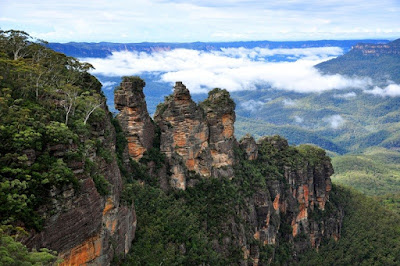Dubai welcomed a record 16.73 million tourists in 2019, an improvement over the previous two years driven by soaring Chinese, Russian and Omani visitor numbers.
The number of international visitors grew by 5.1 percent last year but is still short of its 2020 target of 20 million tourists.
"While the global economy remains in a state of flux, we can clearly see an exciting opportunity to further grow Dubai's dominance in the tourism industry in 2020," said Dubai Tourism chief Saeed al-Marri, according to the Dubai Media Office.
By country, Indian tourists topped arrivals with nearly two million visiting Dubai, a slight drop from 2018.
They were followed by 1.6 million Saudi visitors to the city-state, one of seven sheikhdoms that make up the United Arab Emirates.
Like last year, Britons came in third with 1.2 million tourists. Visitors from Oman increased 24 percent to over one million, putting the neighboring country in fourth place.
Chinese tourists rose by 15.5 percent to 989,000 and Russian visitors increased by 7.4 percent to 728,000.
The number of international visitors grew by 5.1 percent last year but is still short of its 2020 target of 20 million tourists.
"While the global economy remains in a state of flux, we can clearly see an exciting opportunity to further grow Dubai's dominance in the tourism industry in 2020," said Dubai Tourism chief Saeed al-Marri, according to the Dubai Media Office.
By country, Indian tourists topped arrivals with nearly two million visiting Dubai, a slight drop from 2018.
They were followed by 1.6 million Saudi visitors to the city-state, one of seven sheikhdoms that make up the United Arab Emirates.
Like last year, Britons came in third with 1.2 million tourists. Visitors from Oman increased 24 percent to over one million, putting the neighboring country in fourth place.
Chinese tourists rose by 15.5 percent to 989,000 and Russian visitors increased by 7.4 percent to 728,000.
Earlier this month, the UAE introduced a multiple-entry visa scheme valid for five years for all nationalities.
Dubai has the most diversified economy in the region and forecasts record spending this year, with its 2020 budget increasing 17 percent to $18.1 million as it seeks to boost its sagging economy.
The emirate has high hopes that the six-month global trade fair Expo 2020 starting in October will revive its fortunes.
But it still foresees a deficit for the fourth year in a row of $700 million.
The government is hoping Expo will attract 25 million visits, most of them from abroad, and is projecting a 25 percent increase in revenues to $17.4 billion.
Dubai is the only government in the Gulf not dependent on hydrocarbon revenues, and projects around 94 percent of income to come from non-oil sources.
The desert city has large numbers of opulent shopping malls, luxury resorts and even an indoor ski slope.
Dubai has the most diversified economy in the region and forecasts record spending this year, with its 2020 budget increasing 17 percent to $18.1 million as it seeks to boost its sagging economy.
The emirate has high hopes that the six-month global trade fair Expo 2020 starting in October will revive its fortunes.
But it still foresees a deficit for the fourth year in a row of $700 million.
The government is hoping Expo will attract 25 million visits, most of them from abroad, and is projecting a 25 percent increase in revenues to $17.4 billion.
Dubai is the only government in the Gulf not dependent on hydrocarbon revenues, and projects around 94 percent of income to come from non-oil sources.
The desert city has large numbers of opulent shopping malls, luxury resorts and even an indoor ski slope.
Source - TheJakartaPost










